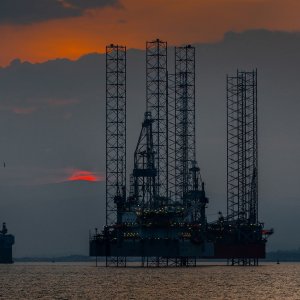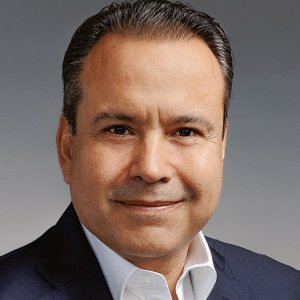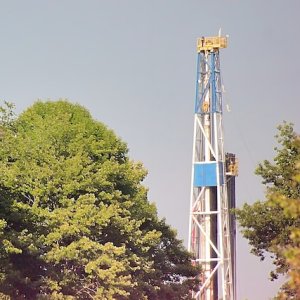Bedrock of Technical Provisions for Solid Projects

STORY INLINE POST
Q: What factors does Wood bring to the table to establish it as an ideal partner for Mexico’s renewable energy project developers?
A: Wood’s core differentiator is its full capacity. It gained the trust of financial entities and developers through its work, which is considered bankable. Our partners listen to us when we advise them on project configurations, layouts and yields and how best to mitigate project risks. Our local colleagues from Amec Foster Wheeler increase our value proposition with their EPC and EPCM experience in Mexico. The merger with Amec Foster Wheeler transitioned us from a relatively small renewables team with SCADA and automation services to a fully-integrated, specialized and technical team that understands the full life cycle of energy-related facilities.
Q: How does Wood guarantee developers an optimal performance throughout the life cycle of their projects?
A: It comes down to effective due diligence processes in the design and construction aspects of a project to ensure they last longer. For instance, PV projects are rather simple from an engineering standpoint, so longevity is not really a concern for their 15-20-year life cycle. The same could be said for wind power, as turbines are designed to be durable, although performance can be impacted by certain external factors. Oaxaca, for example, has very high and rough winds. We are actively involved in life-extension and root-cause failure analyses for projects in that state. Where issues have arisen and both the banks and developers need to know exactly what happened they come to us.
While life-extension problems can stem from a variety of causes, Wood has identified two specific issues from its onsite work in Mexico. First, the preliminary characterization of the resource was awry and design margins were not as substantial as expected. Second, there was the absence of an after-market service for a particular turbine. Strict due diligence prevents these kinds of issues early on in the project. This includes correct wind characterization evaluations with adequate components and capable technicians. The general configuration of Mexico’s long-term electricity projects is reasonable, from our standpoint, as long as it is undertaken by reputable developers and a solid supply chain. While not necessarily a risk, it is preferable to rely on suppliers that have developed a local or regional value chain.
Q: What is Wood’s primary advice to Mexico’s developers for the success of their projects?
A: Any renewable energy project has both a commercial and a technical side. On the technical side, our philosophy is rooted in following industry norms that lay out the playing field in terms of the usual against the unusual. Banks and investors are more at ease when facing the former. If the technical and commercial terms align with the industry practice there will be no issues from a bankability standpoint. However, when projects play outside the usual commercial or technical playing field, we step in and point out where risks are increased and what that may mean for design, construction, or operation of the project. In Mexico, various banking consortiums are eyeing renewable energy projects and developers could benefit by establishing transparent and efficient communication and informational exchange processes with the bank’s consultants in order to avoid delays in financing their projects. The very size of the utility-scale projects being developed in Mexico call for the involvement of international financial consortiums with international project financing expectations.
Q: What key factors explain the continuous decrease of long-term electricity auction package prices?
A: The package price trend observed in Mexico is a reflection of a global trend. Renewable energy development prices are going down worldwide. Every location where a new auction is organized is consistent with this behavior. The new and unique aspects of Mexico’s specific trend is the leadership the country is showing, dictating trends in other markets. Part of that stems from the scale of Mexico’s projects, enabling strong equipment-purchase contracts. A major part of project-development costs is tied to hard materials. If suppliers are providing a large enough volume, developers can capitalize on economies of scale. The same applies to construction costs. Another key factor is financial entities becoming more comfortable within Mexico’s developing energy industry. A wide range of lenders are looking specifically at Mexico and competing against each other to offer competitive financing rates, providing several financing options for developers. Paired to these new financial players, new financial instruments, such as green bonds, are coming in, offering financing capital at lower costs that benefit developers.
Q: How has the merger with Amec Foster Wheeler translated into added value for your clients?
A: Wood Group and Amec Foster Wheeler each had their own unique service offering but together we are stronger. Low oil prices called for a diversification and consolidation push from Wood Group pertaining to the regional footprint and the services it can offer. The end result is a company with 55,000 employees, a stock market value of around US$10 billion and a larger international reach. We provide performance-driven solutions throughout the asset life-cycle, from concept to decommissioning, across a broad range of industrial markets including the upstream, midstream and downstream oil and gas, power and process, environment and infrastructure, clean energy, mining, nuclear and general industrial sectors. Talking specifically about renewable energy services in Mexico and Latin America, the merger opened up interesting opportunities. In terms of experienced engineers, we now have a deeper and wider pool of talent available in Mexico and also from different countries. In terms of services, we now have different inhouse lines we can capitalize on, such as green finance, environmental and social assessments and reviews encapsulating the EIB an IFC works, substation construction and civil works, covering design and construction.
Q: Which services is Wood looking to showcase in Mexico?
A: The core of our business in Mexico at the moment is lender’s due diligence work, which includes a pipeline of over 1.5GW of auction projects for over ten banks. Evaluating operating projects is also part of our business portfolio, through project lifetime optimization services. Our next step is to support our clients in laying the groundwork for optimal, predictable and long-lasting performance during the operational phase of their projects. One example is via our Digital Solutions business which enables us to provide cutting edge optimization software algorithms and machine learning capabilities applicable to operational renewable energy projects. We anticipate this particular niche will become increasingly important in our business as Mexico’s operating renewable energy projects age.
Q: What power generation technologies is Wood focusing on amid Mexico’s energy agnostic transition?
A: Our clean energy division is focusing primarily on solar and wind projects given their success and dominance during Mexico’s long-term electricity auctions. Both technologies play well to Wood’s strengths and we recognize that is the direction the world is going in. Solar and wind are the two technologies driving electricity prices as they are rather simple to develop compared to other technologies and looking at CELs’ secondary market, solar and wind also provide a cost-effective option for CELs trading. Discussions about batteries and grid stability have started and they will become more prevalent as both technologies deepen their penetration in Mexico’s energy mix.
Q: How does Wood remain at the forefront of the energy industry’s megatrends?
A: Wood capitalizes on its footprint across several industries and countries, building a sense of how new developments from other industries, such as oil & gas, can impact the renewable energy industry. We compile and share information on new trends and their potential implication within our group. For instance, energy storage is going to play a big part in Mexico’s energy industry at some point, but the degree to which storage is successful will come down to what services can be offered through their implementation and how those are valued. While the idea of storage is popular, the practicality in implementing storage as an integral part of a renewable energy project’s development is only truly beneficial under certain particular conditions, such as in sites located within a weak point of the electricity grid.
Q: What are Wood’s objectives in Mexico for the near future?
A: Wood’s objective is to help guide the industry to ensure that the projects installed in Mexico are well planned, designed, constructed and operated. Mexico has done a good job from a regulatory perspective. Now, the implementation of strong technical considerations must be built on top of that. Standardization and risk-reduction is called upon on several fronts. Mexico needs to see more projects from the auctions passing through the financing process and being successfully built in order to create the bedrock for a strong, local, renewable energy industry. There will always be work for us and others as long as the technical and commercial foundations for energy projects are sound.
























